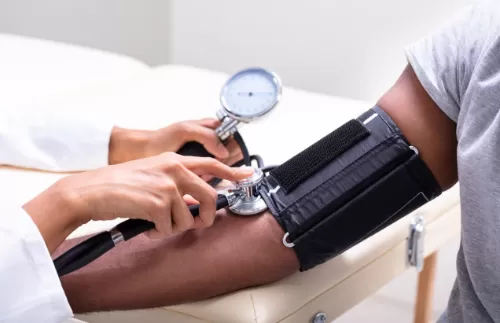Gentle Pain Relief And Lifestyle Tips For Active Seniors
Staying active and enjoying daily life is more important than ever as we age. Sometimes aches and pains try to slow us down, but with the right approach, seniors can keep moving comfortably. In this guide, we’ll touch on four common questions—choosing over‐the‐counter relief for back pain, understanding long‐term opioid risks, exploring natural remedies, and managing arthritis without medication—while focusing on simple, everyday habits that support overall wellness.

What Is the Best Over‐the‐Counter Pain Relief for Back Pain?
When your back starts acting up, reaching for a gentle option first can make all the difference. Nonsteroidal anti‐inflammatory drugs (NSAIDs) like ibuprofen (Advil, Motrin) or naproxen (Aleve) are popular because they ease both pain and inflammation. They typically work within 30–60 minutes. Acetaminophen (Tylenol) can also help reduce pain, although it doesn't tackle inflammation. If you prefer something you can apply directly, a topical cream containing menthol or capsaicin can feel soothing on sore spots—just rub a small amount on the painful area.
✅Tips for Safe Use:
📍Always read and follow the label directions.
📍Take pills with a full glass of water and, if possible, with a small meal to protect your stomach.
📍Don't exceed the recommended daily dose.
📍Talk with your doctor before starting any new pain reliever, especially if you have high blood pressure, kidney concerns, or stomach issues.
What Are the Side Effects of Long‐Term Opioid Use?
Doctors sometimes prescribe opioids (like oxycodone or hydrocodone) for severe pain, but using them for weeks or months can lead to unwanted side effects. Common issues include drowsiness, constipation, and upset stomach. Over time, some people develop tolerance, meaning they need higher doses to feel the same relief. Physical dependence can follow, making it hard to stop without experiencing withdrawal symptoms (such as irritability, sweating, or muscle aches). There's also a risk of increased sensitivity to pain—oddly enough, the longer someone takes opioids, the more their nerves can become “on alert.” Finally, combining opioids with alcohol or sleep medicines can slow breathing and lead to serious complications. Because of these concerns, doctors usually recommend trying other pain‐relief methods first and reserving opioids for short‐term use under close medical supervision.
What Are the Most Effective Natural Pain‐Relief Methods?
Many seniors find relief by adding simple, natural approaches to their routine. Gentle stretching every morning—like reaching overhead, rolling shoulders, or touching toes—can loosen stiff muscles. A daily 15‐ to 20‐minute walk around the neighborhood or in a local park keeps blood flowing, helps lubricate joints, and releases endorphins (the body's own “feel‐good” chemicals).
✅Heat and Cold Therapy:
⏳Use a warm heating pad or take a warm shower before movement to relax tight muscles.
⏳After activities that cause soreness (like gardening), apply an ice pack (wrapped in a cloth) to reduce any swelling.
✅Mind‐Body Techniques:
⏳Deep breathing exercises or short guided meditations (many free videos are available online) can help calm the mind and reduce pain perception.
⏳Simple yoga or tai chi classes designed for seniors improve balance, strength, and flexibility—all while being gentle on the body.
✅Dietary Support:
⏳Adding anti‐inflammatory foods, such as berries, leafy greens, and fatty fish (like salmon), can support overall joint health.
⏳A cup of ginger or turmeric tea once a day may help keep inflammation in check.
How to Manage Arthritis Pain Without Medication?
Arthritis often comes with stiff joints and morning aches, but there are plenty of nonmedication strategies to help.
💡Low‐Impact Exercise:
Water aerobics or swimming are excellent choices because water supports your weight and reduces joint stress.
Cycling on a stationary bike or walking briskly for 20 minutes a day builds muscle around aching joints, giving them more support.
💡Joint‐Friendly Home Adjustments:
Use a small stool or bench when showering so you don't stand on tired knees.
Consider a raised toilet seat or grab bars in the bathroom to reduce strain.
💡Weight Management:
Even losing a few pounds can take pressure off knees and hips. Focus on a balanced diet with plenty of vegetables, lean proteins, and whole grains.
💡Daily Gentle Stretching:
Start each morning with a short routine: flex and point your toes, circle your ankles, and roll your neck gently side to side. These simple moves improve flexibility and reduce stiffness.
Conclusion
Finding relief from pain doesn't mean constant trips to the medicine cabinet. By combining safe over‐the‐counter choices, understanding the risks of long‐term opioids, embracing natural methods, and using nonmedication arthritis strategies, seniors can stay active and enjoy life more fully. Small, consistent habits—like morning stretches, mindful eating, and gentle movement—go a long way toward keeping aches and pains in check. Here's to moving comfortably and aging gracefully!




